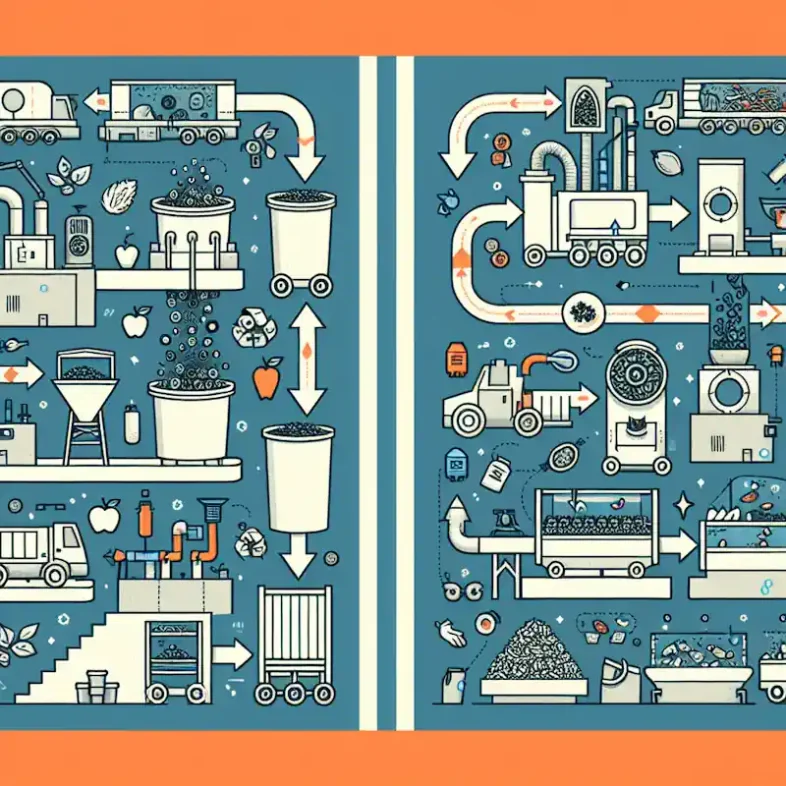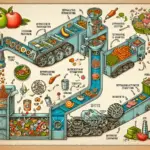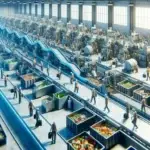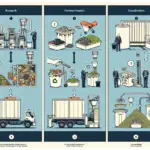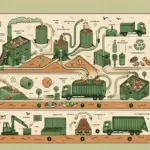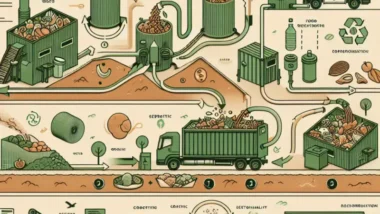Depackaging and separation equipment is a fundamental aspect of managing food waste, a growing concern worldwide due to its environmental implications. This equipment is used to separate packaging materials from organic content, ensuring that the maximum amount of waste can be recycled or converted into useful products.
Food waste depackaging and separation equipment is typically used in industries such as food processing, supermarkets, on-farm operations, and waste management facilities. They play a vital role in reducing the volume of waste headed to landfills while also providing opportunities for recycling or conversion into biofuel.
Understanding the process requires knowledge about the types of food waste and how they're handled by depackaging and separation systems. Food waste can be classified into two main categories: packaged and unpackaged. Unpackaged food waste is relatively straightforward and doesn't require depackaging. However, packaged food waste presents a challenge as it includes both organic matter (the actual food) and non-organic material (the package).
In the depackaging stage, machines are designed to remove packaging from food products. These machines can handle a variety of materials including plastic, metal cans, cardboard boxes, and more. The process involves crushing or shredding the packaged product to break it down into smaller pieces. Then, through a series of mechanical processes including screening and separation strategies such as trommels or centrifuges, the packaging material is separated from the organic matter.
The separated organic matter can then be used for various purposes such as composting or anaerobic digestion to produce biogas – an alternative source of energy that reduces reliance on fossil fuels. On the other hand, the packaging material can be redirected into appropriate recycling streams.
However, not all kinds of food wastes are suitable for every method of disposal or reuse. For instance, meat products may not be appropriate for composting due to potential health risks but may be perfectly suitable for anaerobic digestion processes.
Furthermore, it's important to note that effective use of food waste depackaging and separation equipment requires regular maintenance and cleaning. This ensures the equipment operates efficiently and reduces the risk of cross-contamination between different waste streams.
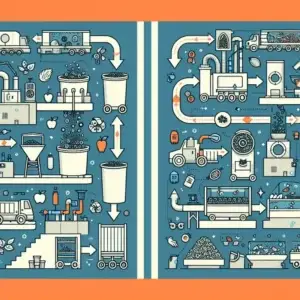
In conclusion, understanding the basics of food waste depackaging and separation equipment is crucial in tackling global food waste issues. By separating organic from non-organic materials, these systems allow us to make the most out of what would otherwise be discarded, turning a problem into an opportunity for recycling and renewable energy production.
In-depth Analysis: How Does Food Waste Depackaging and Separation Equipment Work?
Food waste depackaging and separation equipment plays a significant role in managing and reducing waste, particularly in the food industry. This equipment is designed to separate packaging materials from the organic contents, allowing for more efficient recycling and disposal processes. The following is an in-depth analysis of how these machines work. According to the Food […]
The Future of Recycling: The Importance of Food Waste Depackaging and Separation Equipment
The future of recycling is a topic that has garnered significant attention in recent years. As the world's population continues to grow, so does the volume of waste that we produce. This waste, if not managed properly, can have devastating effects on our environment. One area where this issue is particularly pertinent is food waste. […]
How to Choose the Right Food Waste Depackaging and Separation Equipment for Your Business
Whether you own a small-scale business or a large-scale industry, waste management is a crucial factor that can significantly impact your operations and environmental footprint. One essential part of this process is dealing with food waste through depackaging and separation. As such, choosing the right food waste depackaging and separation equipment for your business is […]
The Role of Food Waste Depackaging and Separation Equipment in Sustainable Waste Management
In recent years, the issue of waste management has become critical due to urbanization and population growth. One aspect that requires significant attention is food waste, a major contributor to overall waste production. With the growing awareness about sustainability and resource conservation, managing food waste has become crucial. In this regard, food waste depackaging and […]
